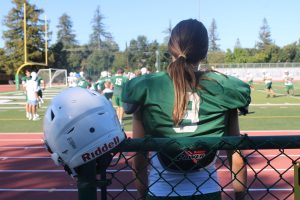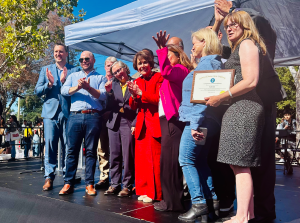Column: A youth view of polarization in democracy
January 20, 2021
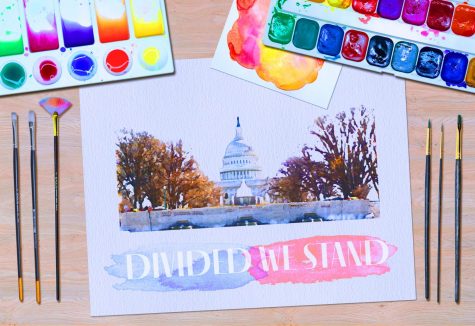
As soon-to-be voters in the world’s shining city upon a hill, we are terrified — of our democracy tumbling down into disunity.
Earlier this month, we watched as Capitol Hill was stormed by a mob of rioters attempting to overturn the election in favor of President Trump — a notable handful parading Confederate flags — all while chanting “Where is Pence?” and “USA!”
In truth, a part of the nation erupted in excitement, feeling the power righteous, defiant revolution rumbling under the Capitol steps. The remainder of the country turned numb in shock — as did many of us students.
The assault on democracy not only turned the tables on America’s prime exemplar of a democratic, constitution-esteeming nation, it also set a tumultuous precedent for our nation’s youth and our view of democracy. And although the response in certain communities to last week’s Capitol mob has been overwhelmingly filled with disgust, a recent Pew Research poll found that 33% of Americans believe that “Trump definitely/probably won the 2020 election” and widespread fraud overturned results despite federal appellate courts’ categorical dismissal of Trump’s legal challenges.
Over the last four years — a critical coming-of-age period for many soon-to-be voters — the executive branch has taken an unexpected turn, with behavior unseen by past presidents becoming normalized. Among students, this attack was, of course, surprising — yet, having witnessed a nation increasingly divided over our formative years of understanding national politics, it was not nearly as life-altering as it was for adults who have spent a lifetime with non-violence-inducing presidents and peaceful transitions of power.
We have scarcely seen first-hand how an American president ought to act over the past four years beyond 2 a.m. tweets, blatant disregard of a tried-and-true electoral system, and refusal to condemn violence and white supremacy.
“The majority of the time I’ve been old enough to understand politics or form my own political ideologies has been under Trump’s presidency,” sophomore Dalia Antebi said. “I often read that or am told by relatives and people older than me that his actions aren’t normal, but I really have no personal recollection of other presidencies to compare it to. … I only have a construct of what a president should not be like.”
The politics we have grown up witnessing are splitting the nation apart. While many Americans attempt to separate the increasing political polarization of our country from cultural and social issues, studies show that they are more intertwined than ever. A 2019 analysis published in the American Journal of Political Science discovered that political ideology dictates our moral values.
As Peter Hatemi, a professor at Pennsylvania State University and the study’s lead author put it, Americans “switch our moral compass depending on how it fits with what we believe politically.”
More than true partisan policy issues, cultural and social intolerances — used as campaign weapons by politicians — are tearing the nation apart, and consequences have been crystal clear in recent weeks. Treatment invoked by cops upon Capitol rioters was a jarring juxtaposition with the tear gas and rubber bullets showered upon overwhelmingly peaceful Black Lives Matter protestors — many of us youth activists — just months ago.
In fact, the disturbingly weak resistance against rioters was not a mistake. Instead, it was the result of our politically appointed leadership’s orders. Stanford Policy Professor James Fearon, a specialist in national security, explained to The Paly Voice that law enforcement and state forces are sturdy enough to combat such riots if instructed to do so.
“State forces in the U.S. are easily strong enough to nip any nascent insurgency by non-state groups in the bud, if put to the task by political leadership,” Fearon said.
Clearly, they were not on Jan. 6. Despite repeated offers of National Guard support from the Pentagon, Capitol police continuously refused even as the protest grew violent.
Regardless of party affiliation, our nation’s youth ought to look towards unity as the next generation of voters. Towards reconciling our differences, towards compromise as we so famously have done over the past two-and-a-half centuries of our democracy.
It will start with equal treatment and unbiased police response, demonstrating that the government will not tolerate the discrimination that has plagued our nation long after the civil rights movement. Systemic reform must trickle down from the halls of the White House.
Most importantly, we young Americans must embrace this opportunity to demonstrate our intolerance for anyone trampling the Constitution. Across all backgrounds, political parties and states, our nation is united by our fidelity for constitutional freedoms: rights to liberty, equality and peaceful protest in the face of injustice.
If these democratic principles are broken, the future for our youth is at best precarious.
Fearon shared a similar viewpoint, highlighting the need for stronger police response on insurrectionary attacks on democracy.
“This problem [of domestic unrest] was already there before the mob attack on the Capitol,” Fearon said. “Hopefully, the political and overall popular reaction to this disaster will start to turn things around, in terms of a more aggressive law enforcement response to domestic terrorist and insurrectionist groups.”
When we hold each other and our nation’s leaders accountable, we can ensure that this great American experiment will continue. As sophomore Owen Kuwayti noted, recent politics have been eye-opening to the impact of the president on each of us as rising voters.
“A president should act professionally as well as have strong morals as well as be qualified for the job,” Kuwayti said. “It [the past four years of leadership] made me realize how important it is to have a good person in office.”
The last couple of years for American politics have been tough, and filled with cries for change. That change will soon lie in our hands — to select leaders that represent American principles of democracy. That is how we should chant “USA.”


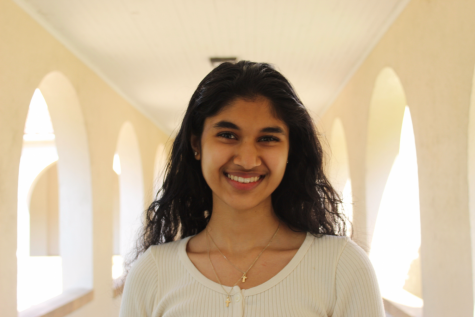
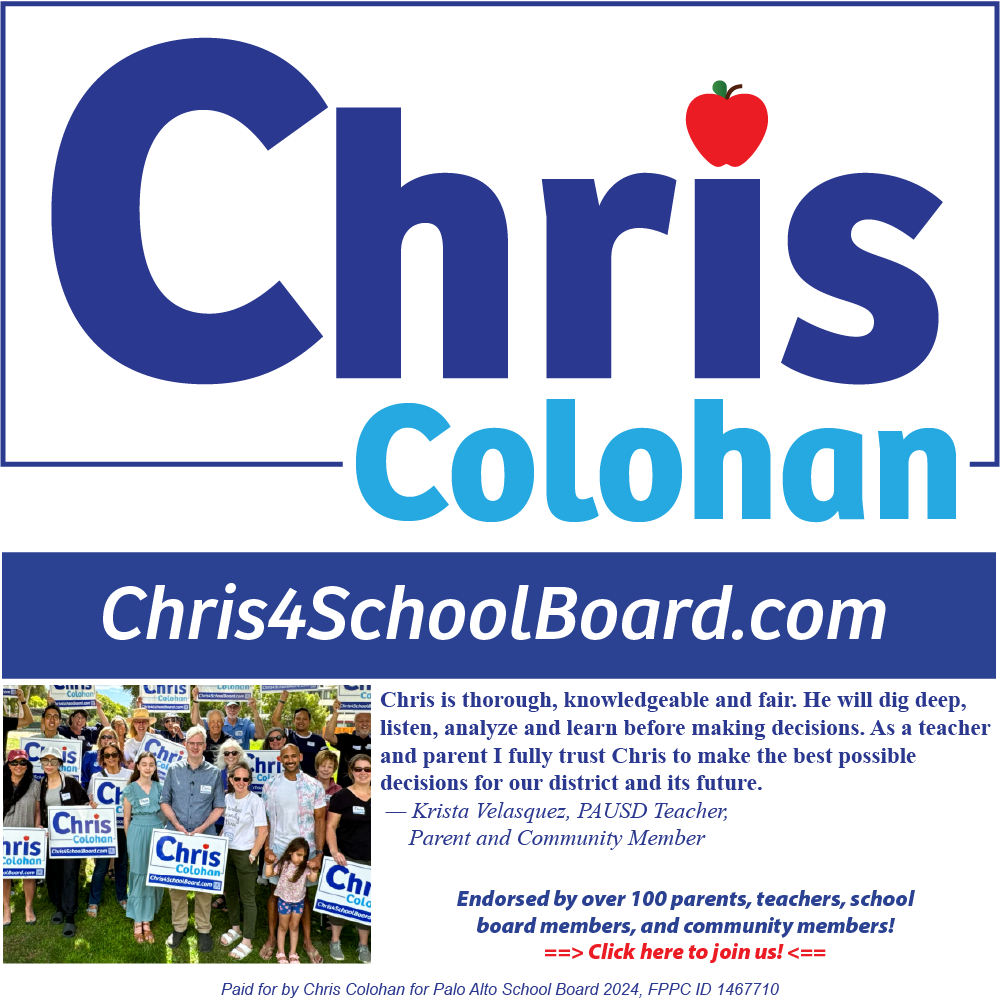
![In the fourth period AP Calculus BC class at Palo Alto High School, senior Crystal Li places her phone in the “phone jail.” Starting July 2026, this may become a normal procedure across schools in California thanks to Governor Gavin Newsom signing the Phone-Free School Act into law last week. According to Li, there are often unnecessary complications that come with enforcing phone restrictions. "It becomes a hassle putting it [a phone] in [the phone jail] before class, and taking it out after class," Li said. "There have been multiple times where kids from other periods interrupt the teacher to come back in and pick up a phone they left."](https://palyvoice.com/wp-content/uploads/2024/09/IMG_7386-3-300x225.jpg)
